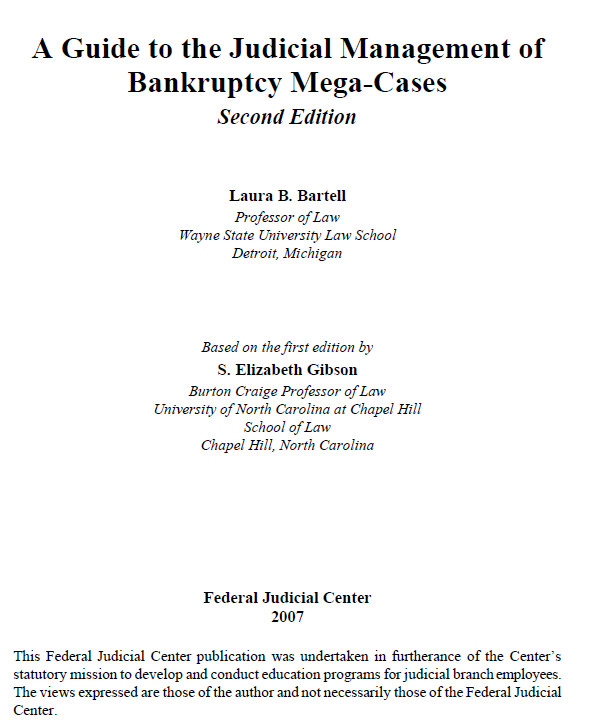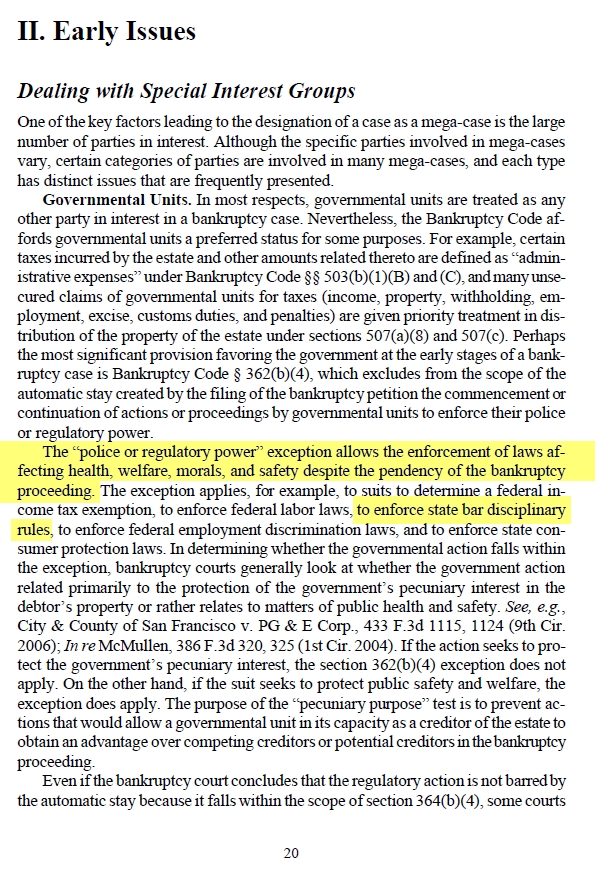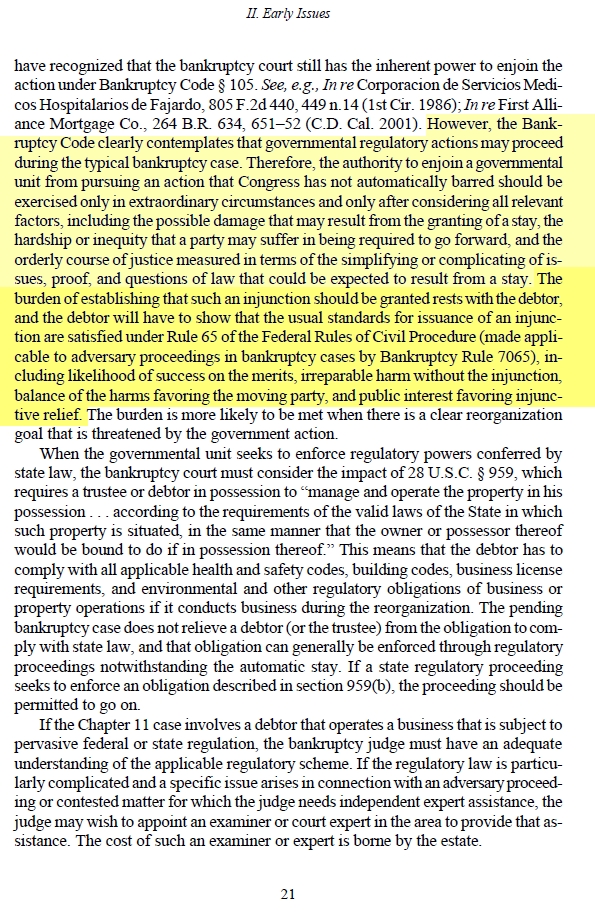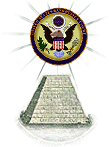|
Wilful Judicial Malfeasance
BankruptcyMisconduct explains how our Federal Bankruptcy Courts sadly reveal instances of gross Judicial Malfeasance. First we will eviscerate the false premise behind which Judges hide their malfeasance, and illuminate the truth which obligates their duty to identify and combat misconduct and crime in cases before them. Next, we will highlight a few cases of outrageous malfeasance.
Who knows, this may become a website, even wiki, of its own ...
False Premise: The Automatic Stay & Reorganization Imperative Require Attorney Misconduct & Crime to be Ignored
Nope. The truth is that every Federal Bankruptcy Judge, as well as every Trustee, must deliver a written referral to an appropriate District Attorney for each and every instance of a suspected crime. 18USC3057 The word "suspected" is telling. A crime need not be proven, and a Judge/Trustee can't hide behind a specious excuse such as "no crime was proven" or "I'm not aware of the parties mindset". The purpose of the statute is to avoid the burden of deciding such issues by a judge, and to direct possible crimes to their appropriate venue. Any DA can make a decision of whether or not to prosecute a crime, no Judge holds the authority to decide whether a crime is prosecuted! Any fool who would argue that a judge can ignore a crime, or a possible crime, makes a frivolous argument when the statute so clearly and consistently employs the word "shall".
Judges also like to ignore misconduct by counsel, particularly with respect to certain fraud upon the court. Yes, any time a lawyer files a false declaration with the court as to their conflict of interest, it is a willful crime. Since counsel is required to maintain adequate information systems to be aware of even potential conflict of interest, there is no safe haven for the excuse "oops, we made a mistake".
But you don't have to take the word of BankruptcyMisconduct, why don't you just read what the Federal Judicial Center, the research and education agency of the federal judicial charged with the statutory mission to develop and conduct education programs for judicial branch employees, has to say about whether a bankruptcy judge can ignore state bar regulations, and the incredibly high hurdles that exist for the willful allowance of any sort of misconduct, as well as the burden upon the Debtor to address all of the issues. Long story short, there is a treasure trove of treasonous violation material of law by a series of federal bankruptcy judges for a federal special prosecutor to harvest. Here... read for yourself (emphasis added):

 
|
 CA Bar Complaint (14923)
CA Bar Complaint (14923) SONICblue - A Claims Trader's Fees Reimbursed for Alerting about Attorney Misconduct (12878)
SONICblue - A Claims Trader's Fees Reimbursed for Alerting about Attorney Misconduct (12878) Haas v. Romney 2nd Amended Complaint (12200)
Haas v. Romney 2nd Amended Complaint (12200) CA Bar **Revised** Complaint (11354)
CA Bar **Revised** Complaint (11354) SEC filings by client of PriceWaterhouseCoopers and HBD (11081)
SEC filings by client of PriceWaterhouseCoopers and HBD (11081) Doug Pick Esq. advice on Death Threats (10953)
Doug Pick Esq. advice on Death Threats (10953) Judicial Complaint against Judge Paul G. Hyman by Mary Alice Gwynn (10644)
Judicial Complaint against Judge Paul G. Hyman by Mary Alice Gwynn (10644) Shock! Peck's Lehman case colored by fraud? (10348)
Shock! Peck's Lehman case colored by fraud? (10348) SEC - so simple even a Caveman can see it! (9887)
SEC - so simple even a Caveman can see it! (9887) CABAURHBDreq1 (9641)
CABAURHBDreq1 (9641)




